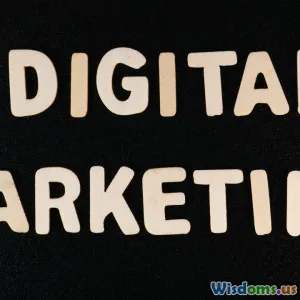
Unlocking Career Potential with Language Skills
7 min read Discover how mastering languages can elevate your career, unlock global opportunities, and enhance professional growth in today's interconnected world. (0 Reviews)
Unlocking Career Potential with Language Skills
In an increasingly globalized world, the ability to communicate across different languages has transformed from a mere advantage into a professional necessity. Language skills open doors that monolingual individuals might never even find. But how exactly do these skills translate into tangible career benefits? From expanding job prospects to improving cognitive abilities and cultural intelligence, mastering a new language can be a career game-changer. This article dissects the transformative power of language proficiencies and explores practical ways language skills can unlock your career potential.
The Global Demand for Multilingual Professionals
The global economy has knitted countries together, making international collaboration an everyday occurrence. According to a New American Economy analysis, job postings requiring bilingual skills more than doubled from 2010 to 2015 in the United States alone — rising from 206,000 to over 450,000. This trend is accelerating across various fields such as healthcare, education, technology, and international trade.
Real-world Example: Tech Sector Surge
Companies like Google and IBM actively seek multilingual talent to better penetrate non-English-speaking markets. At Google, language skills allow for localization specialists and customer support agents to tailor services culturally and linguistically, enhancing user experience and market reach.
Remote Work and Language Skills
Remote work, accelerated by the COVID-19 pandemic, connects multinational teams with increasing language-based communication needs. Employees who speak multiple languages quickly gain favor as collaborators capable of bridging communication gaps, driving team cohesion, and facilitating problem-solving across cultural divides.
Career Advantages of Learning Languages
Enhances Employability and Job Security
Multilingual candidates often enjoy better job prospects and negotiations leverage. According to a survey by The Economist, 55% of employers globally say language skills are a critical hiring criterion. In sectors like tourism, diplomacy, and international law, bilingualism is frequently a minimum requirement.
Accelerates Salary Growth
Companies recognize the added value of language skills financially. Harvard Business Review notes that bilingual employees earn between 5% to 20% more per hour than their monolingual counterparts. For example, Spanish-English bilingual teachers in the US report salary premiums due to their immersion expertise.
Opens Doors to Unique Roles
Career opportunities not visible to monolingual professionals become accessible. Language professionals work in translation, interpretation, localization, language technology, and cultural consultancy—fields growing alongside globalization.
Boosts Cognitive and Soft Skills
Learning a language develops critical thinking, multitasking, and problem-solving abilities. The Journal of Applied Linguistics highlights bilingual individuals show enhanced creativity and adaptive learning—skills invaluable for leadership and innovation.
Example: Diplomatic Service and International Relations
Proficiency in foreign languages is indispensable in diplomacy. The US Foreign Service requires candidates to pass language proficiency tests in one or more languages—for effective negotiations and cultural diplomacy.
The Strategy to Harness Language Skills for Career Growth
Identify Language Skills Relevant to Your Field
Not all languages carry equal weight professionally. Research the languages dominating your target industry or region. For instance, Mandarin is valuable in international finance, while German can open doors in engineering sectors.
Gain Certified Language Proficiency
Obtaining certifications such as the DELE (Spanish), HSK (Chinese), or TOEFL (English) enhances credibility and proof of proficiency on professional platforms like LinkedIn and resumes.
Combine Soft Skills and Cultural Competence
Language mastery includes understanding cultural nuances. Professionals who combine language skills with cultural intelligence become indispensable, as globalization requires more than basic communication—it demands meaningful connection.
Use Technology to Practice and Network
Language learning apps (Duolingo, Memrise) and virtual language exchanges can polish skills. Likewise, attending industry-specific webinars in foreign languages builds both specialization and language competence.
Inspiring Success Stories
Sheryl Sandberg's French Fluency
Sheryl Sandberg, former COO of Facebook, credits her French fluency with enhancing her global management skills. During Facebook’s expansion into Europe, her understanding of language and culture played a strategic role in navigating complex markets.
Tech Innovators and Language Skills
Entrepreneurs like Elon Musk advocate multilingual abilities to foster global innovation teams. Multilingual teams enhance problem-solving diversity, leading to groundbreaking ideas.
Conclusion: Your Next Career Move Starts with a Language
Unlocking career potential through language skills is not simply about vocabulary acquisition—it's about expanding your worldview, deepening cultural insights, and creating invaluable connections. As the working world becomes more interconnected, bilingualism, or multilingualism, shifts from a competitive edge to a career cornerstone.
Whether you’re entering the job market, considering a pivot, or seeking international growth, investing time in learning a new language can multiply career opportunities exponentially. It enhances salary potential, broadens your professional network, and unleashes creative cognitive flexibility.
Embrace language learning as a strategic career tool—indeed, your key to unlocking a world of professional potential.
Sources:
- New American Economy Report on Bilingual Job Posting (2017);
- Harvard Business Review on Bilingual Wage Premiums;
- The Economist Global Employer Survey (2018);
- Journal of Applied Linguistics research on bilingual cognitive advantages;
- US Department of State Foreign Service Language Requirements.
Rate the Post
User Reviews
Popular Posts





















